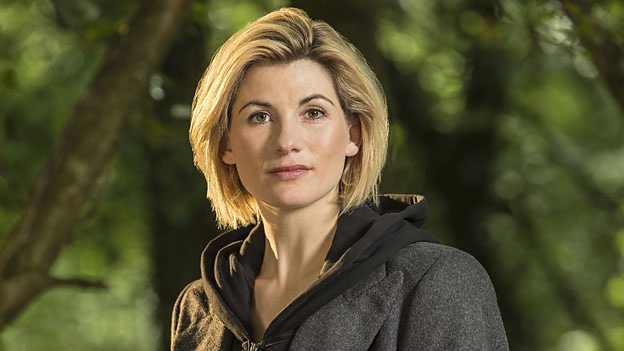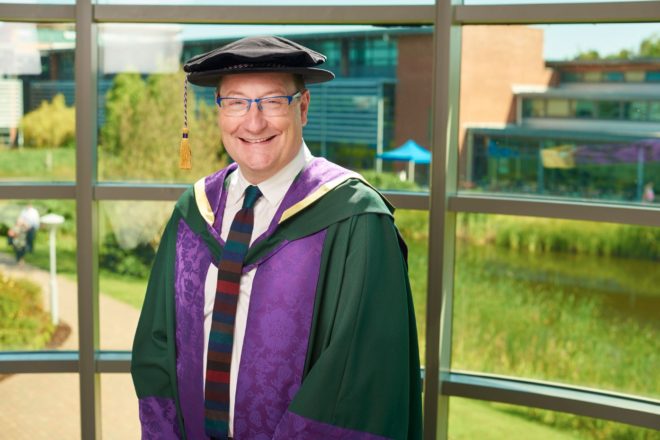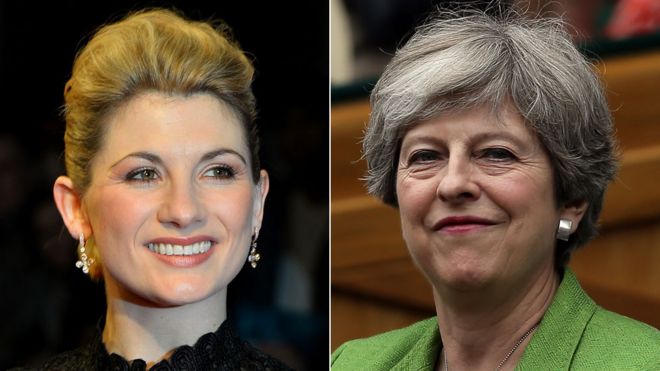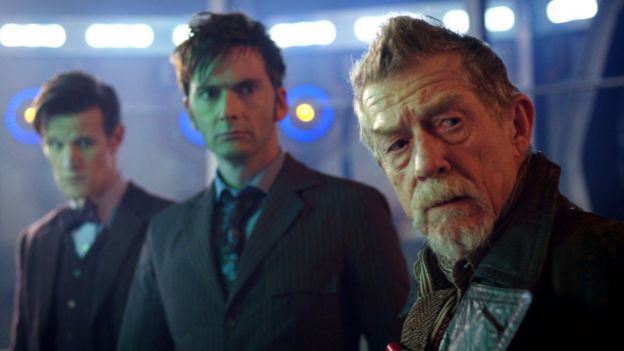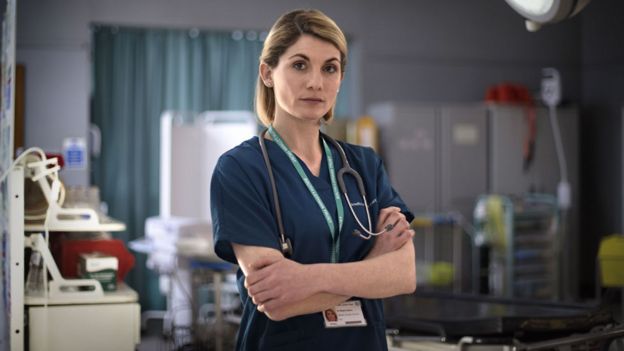
Steven Moffat has the hardest job in television says The New Statesman. Doctor Who is a show like no other. With almost 55 years of established lore, tight BBC budgets, a global fan base ranging from toddlers to pensioners, the burdens that come with being a national institution, and stories based on Mars one week and the Orient Express (in space) the next, the complexities of making Doctor Who are second only to negotiating Brexit.
What is more, Doctor Who fans, myself included, are the worst. We’re fickle to the point of callousness: one week we’re weeping like bereaved children over the “death”, of David Tennant, the next we’re beside ourselves with excitement about Matt Smith, all the time secretly hoping that Paul McGann will reprise the role. We somehow manage to adore all the Doctors, without ever fully committing to any one of them.
Fans are about to go through the grieving quickly-followed-by-falling-in-love process all over again, as Jodie Whittaker takes over from Peter Capaldi, and the show, at long last, gets a female lead. But before another regeneration scrambles our heads, and Moffat hands the reins to Chris Chibnall after the Christmas special, it’s worth looking back at seven remarkable years in which Moffat has made some captivating television.
Moffat took over as show runner at the point where David Tennant became Matt Smith, his first season airing in 2010. Prior to this, he had written some of the best scripts since the reboot, including “The Empty Child” and “Blink”. Nevertheless, Moffat’s involvement with the show predates the reboot. In 1999, ten years before he became show runner, he wrote Doctor Who and the Curse of Fatal Death, a special for Comic Relief. This early foray into Doctor Whois incredibly revealing. It demonstrates Moffat’s deep affection for the show, his understanding of Doctor Who’s traditions, and his willingness to play with fans’ expectations by subverting the format.
The Smith and Capaldi years have not been without blemish. Moffat has been criticised for not hiring enough female writers, for struggling to write independent female characters, for heavy-handed dialogue, for pandering to feminists, for a dearth of two-part stories, for putting style ahead of substance, for being too self-referential, for overly complex plot lines, and even for some duff episodes.
The truth is, and while this is never said in public, Doctor Who fans admit it freely in private, the show has never been consistently good. Even Tom Baker, the show’s gold standard, had some dodgy episodes. The less said about “The Horns of Nimon” the better. The thing to remember is that when an episode leaves you cold, there’s a five-year-old somewhere enjoying every second, and in the case of “The Horns of Nimon”, that five-year-old was me.
Crucially, Moffat’s real strength is that he gets Doctor Who. Moffat’s Doctors, true to the essence of the show, have been deeply unconventional heroes. Tennant, an excellent Doctor – destined to be remembered as one of the real greats – occasionally slipped into conventional hero mode. Moffat’s Doctors never did. The Eleventh Doctor flitted from crisis to crisis, rarely in control of the situation, swinging between barely concealed panic and the misconception he was cool.
When Tennant put on a dinner jacket he could have been James Bond. When the Eleventh wore a dinner jacket to Amy and Rory’s wedding he was endearingly out of place. Similarly, when John Pertwee’s Doctor worked with UNIT in the seventies (or was it the eighties?) he was a plausible part of a human institution, with a desk, a title, even a parking space. Moffat’s Doctors, by contrast, are brilliant at saving planets, but rubbish at fitting in. They retain their alienness in exactly the way that the Doctor should.
At the same time, they are still heroes. When Doctor Who came back in 2005, it was quickly revealed that the Doctor had committed genocide not once but twice. Fans, somehow, and bafflingly with hindsight, took this in their stride. Moffat recognised that the Doctor is a fundamentally moral character and therefore could never commit such a crime. Ingeniously, he allowed the Doctor to end the Time War without firing a shot. Indeed, Moffat’s Doctors, even the War Doctor, never carry guns.
Moffat also deserved credit for exploring the possibilities at the heart of the show. Doctor Who has been a time travel show since its inception. Yet Moffat has made more of the narrative potential of time travel than any previous writer. River Song’s story was told out of sequence. And Season 6, from the Doctor’s point of view at least, begins at the end.
Running Doctor Who is the hardest job in television precisely because it has the potential to be the best show on television, and I say that in a world where Twin Peaks is back for a third season. For all the show’s accumulated history, it boils down to a “madman with a box”, who can travel anywhere in time and space. Moffat’s stories have taken full advantage of the show’s scope, placing dinosaurs in Victorian London, bringing back the Zygons and the Mondasian Cybermen, taking the British Empire to Mars, exploring alternative realities, and leaving the Doctor alone in a castle-cum-personal-hell for billions of years. He even, in the most audacious move since 1966, introduced a past incarnation of the Doctor previously unknown to fans.
As Moffat moves on, his career on the show comes full circle. His first Doctor Who script (for Comic Relief) ended with the Doctor regenerating as a woman, his last script will do the same. The show will, no doubt, continue to go from strength to strength. Fans, myself included, will forget Capaldi and become devoted to Whittaker. Moffat has made an indelible mark on the show, and his era will be remembered as a golden age.
